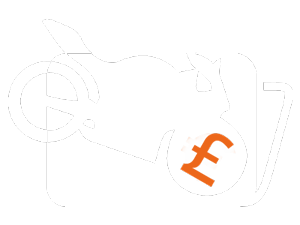Motorbike sale abroad

Selling a motorbike with defects in this country is often more difficult than one might think. Accordingly, it is often easier to try your luck on the other side of the border. Especially if it's a vehicle that has neither a MOT nor an environmental sticker, you often have a better chance of getting a good price in Eastern Europe or outside Europe.
Selling to other EU countries is hardly any different from selling within Germany. Nevertheless, you should pay attention to a few things in order not to get into trouble afterwards.
What do you have to consider when selling abroad?
The most important thing is to deregister your bike before selling it! The buyer cannot do this later from his own country, because a vehicle that is registered in Germany can only be deregistered there. If you do not do this, it can lead to considerable difficulties. For one thing, you would still be obliged to pay the vehicle tax, and in the event of accidents, administrative offences or criminal offences, you would still be the person liable. In addition, it is more difficult to detect fraud outside Germany than within the country. If the sales price is over €1000, you must not forget to declare your motorbike to customs.
Before you hand over your motorbike to the buyer, it is advisable to check the most important papers once again.
The following points should be stated on the purchase contract:
- The full name of both contracting parties
- The full addresses of both contracting parties
- The identity card number of the buyer
- The date and time of the vehicle handover
If the buyer allows it, it is advisable to also make a copy of his identity card. However, the buyer is not obliged to authorise this.
Before the motorbike can be transported out of Germany, it is given a so-called export licence plate. This differs from the short-term licence plate in that it is valid for longer and is accepted by all countries.
If the new owner causes an accident after the vehicle has been handed over, but before the bike has been re-registered, the settlement will continue to be handled by your insurance company and you will both be considered debtors. In this case, the insurance company chooses which of the two has to bear the costs. If the buyer has already registered the motorbike in his country, he alone is at fault and you have nothing to fear.
Motorbike sales outside the EU
In principle, the sale of a motorbike outside the EU states is also free and no taxes or similar are incurred in the case of a private sale. However, in order to be able to transport it, the export must be declared to customs. You can only find out yourself on request whether you will have to pay costs in the end. To export a vehicle, you must first apply for a so-called EORI number. This number is mainly used to store information about the contracting parties and the export goods and to be able to retrieve this information at any time.
This is what you need to register the export:
- Copy of the vehicle registration certificate
- Copy of the export invoice
- Type of transport
- Details of the border customs office where the vehicle will leave the EU
When exporting outside the EU, you also need the export licence plate and motor vehicle liability insurance. In order for your request for an export to be confirmed, you will need the following documents:
- Registration certificate part 1 and 2
- Deregistration certificate
- Export insurance certificate
- TÜV test report
- Registration number
- Identity card or passport of the vehicle owner or a power of attorney
- The motorbike
If the inspection was successful, you will receive an MRN number (Movement Reference Number) with which your machine can officially pass through customs and which will be stamped by the customs officials at each customs border office. You should keep this stamped export declaration as proof for the tax office.
However, the easiest way for you is to sell your used motorbike abroad to a dealer. As a rule, they are very familiar with the respective export conditions.
Beware of scammers!
There are a few things to keep in mind to make sure you are on the safe side:
Never accept cheques, because they are often forged. It is also better to avoid bank transfers. The safest method of payment when selling a motorbike abroad is always cash. Nevertheless, check that the amount is correct before handing over the bike. If the buyer has no possibility to pay you in cash, an alternative secure payment method would be PayPal. Accordingly, it is clear - never hand over the motorbike and vehicle registration to the potential buyer before payment.
It is also best not to approach interested parties who want to negotiate a purchase contract with you by e-mail. This can quickly lead to certain details being falsified and, in retrospect, you will be at the back of the queue after the contract has been signed.
Lastly, we would like to note that most motorbike buyers are interested in a test drive. With a car, you can ride along without any problems. With a two-wheeler, however, this is not possible. So always check your driving licence in advance and ask to see your identity card. Then you can be sure that your motorbike will be returned. In addition, you should never hand over the vehicle registration to the prospective buyer for the test ride, because with the vehicle registration in your pocket, the person can disappear with your motorbike.
If you follow all the tips and approach the matter with caution, nothing should stand in the way of a successful sale abroad!
Good luck!
Checklist
Sale within the EU
- Deregister motorbike
- Copy of identity card
- Export licence plate
- Written purchase contract incl.:
- The full name of both contracting parties
- The full addresses of both contracting parties
- The identity card number of the buyer
- The date and time of the vehicle handover
Sale outside the EU
- Declare export to customs
- EORI number
- Kopie vom Fahrzeugbrief
- Copy of the export invoice
- Type of transport
- Details of the border customs office where the goods will leave the EU
- Export licence plate
- Motor vehicle liability insurance
- Registration certificate part 1 and 2
- Deregistration certificate
- Export insurance confirmation
- TÜV test report
- Registration number
- Identity card or passport of the vehicle owner or a power of attorney
- The motorbike
- MRN number

 Instagram
Instagram YouTube
YouTube Facebook
Facebook LinkedIn
LinkedIn TikTok
TikTok X
X